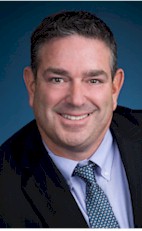
Chatbots and voice assistants. Artificial Intelligence and Machine Learning. And, Natural Language Processing? What possibly could these have to do with serving guests in a hotel? It's the ultimate Sci-Fi question: can humans and machines not only coexist but blend into a single entity. It's time we take our humanity and cobble on some AI and ML, mix it with a dash of NLP and top it off with some Deep Learning and punch out a robust, not robot, service initiative to enhance guest satisfaction and the bottom line. READ MORE


















